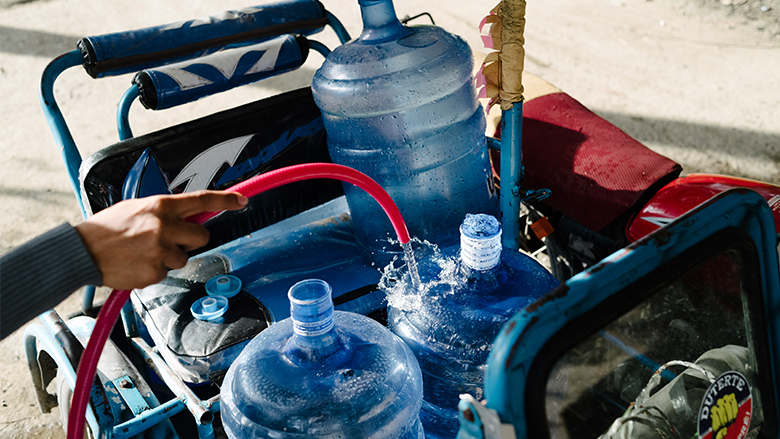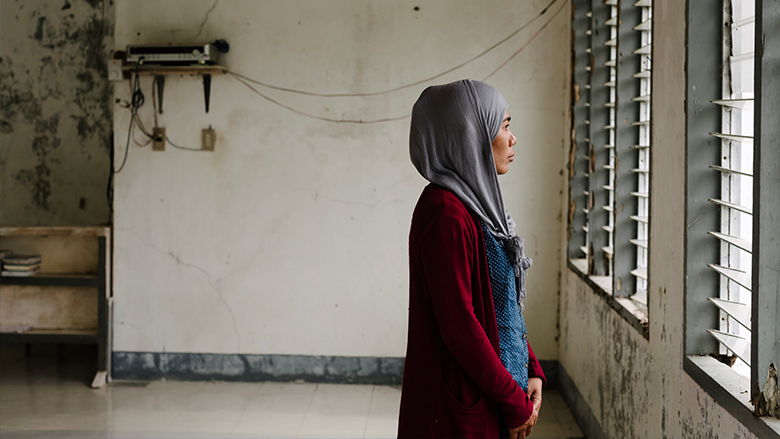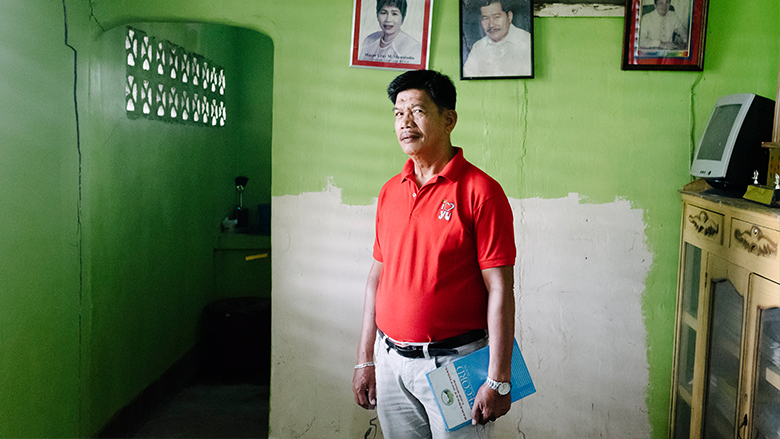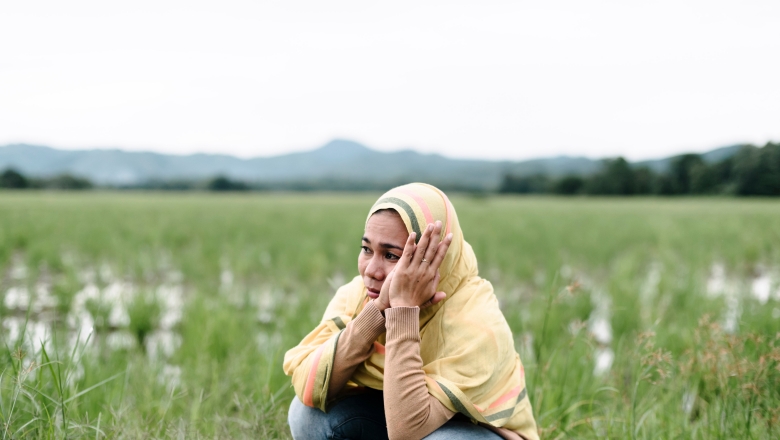Mindanao, Philippines - It’s late in the afternoon. Nhor Momin stands by the water faucets. Satisfied no more customers are coming to collect water, she turns off the taps, locking them in place with a simple brass padlock. Nhor collects the day’s takings, hails a scooter and heads home.
Access to clean drinking water is now a part of life for residents of Upper Campo Islam. But for the 20 years leading up to 2011, the community did not have access to clean water. As one of many conflict-affected communities in Mindanao, Upper Campo Islam has long-suffered from poor infrastructure, a lack of basic services and weak local governance.
“Life was difficult without [clean] water,” remembers Nhor. “We needed to haul it from other villages, pay 12 Philippine Pesos ($0.25) per container, and pay again to transport it home. If we went three or four times a day it would cost us 70- 80 Philippine Pesos ($1.25-$1.67) just in transport. So it was hard — 80 Pesos is too much for us.”
Upper Campo Islam is located in the municipality of Labangan, southern Mindanao. Like much of the province, it has struggled with three types of conflict — rido (violent feuds between families or clans), politically-motivated violence, and armed insurgency. Nhor personally has been affected by rido.
“It’s like killing one member of the family, then one is killed back, then another killing. [Even after we moved] two of my brothers were shot because of this family conflict. One brother was killed in front of our house.”
Nhor returned home to Upper Campo Islam in 2007, after ten years abroad working as a domestic helper in the Middle East. Frustrated by the lack of water, she and members of her village’s People Organization worked hard to get a water supply project going in the community. The project now gives around 1,000 people in the municipality access to fresh, clean drinking water via both public and private faucets.
“Water is life. The day the water started to flow out from the taps; it was a feast. We were all very happy, I was the happiest one. I cried because I knew I’d done something right for the community.”
The water supply project in Upper Campo Islam was facilitated by the Bangsamoro Development Agency (BDA), the development arm of the Moro Islamic Liberation Front (MILF). Following a 2001 agreement between the government of the Philippines and the MILF, BDA is tasked to determine, lead, and manage relief, rehabilitation and development projects in the conflict-affected areas.




